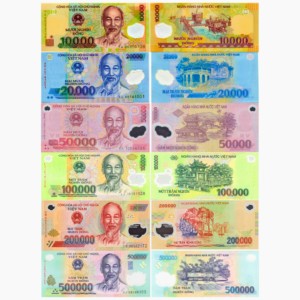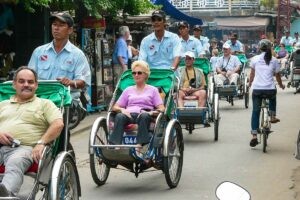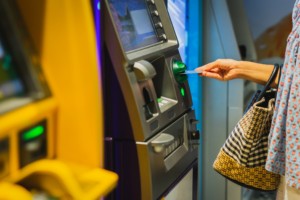Are there common scams tourists should be aware of? Absolutely! Vietnam, a captivating destination with bustling cities and serene landscapes, unfortunately, also has its share of scams targeting unsuspecting travelers. Don’t let that deter you; SIXT.VN is here to equip you with the knowledge to navigate your Vietnam adventure safely and confidently, ensuring an unforgettable trip filled with authentic experiences. To travel without worry, learn some popular schemes and travel rip-offs for a hassle-free vacation.
1. What Petty Theft Should I Watch Out for in Vietnam?
Petty theft, while not a scam, is a reality in crowded tourist spots. Pickpocketing thrives in bustling areas like markets and public transportation. Be especially cautious of motorbike riders who snatch bags or phones.
How to Avoid Petty Theft:
- Use a money belt or hidden pouch for valuables.
- Never keep your wallet in your back pocket.
- Avoid displaying expensive jewelry or electronics.
- Carry small amounts of money.
- Store valuables in your hotel safe.
 Hidden pouch for valuables to avoid travel scam in vietnam
Hidden pouch for valuables to avoid travel scam in vietnam
2. What Should I Know About Currency Exchange Scams?
Some currency exchange services, especially at airports and tourist hotspots, offer poor exchange rates or provide counterfeit currency.
How to Avoid Currency Exchange Scams:
- Use reputable banks like Agribank, Vietcombank, or Techcombank for exchanges.
- Check current exchange rates from reliable sources.
- Inspect exchanged money carefully for security features.
- Consider using international debit or credit cards.
- Refer to SIXT.VN’s guide on currency exchange for more detailed tips.
3. How Can I Prevent Money-Switching Scams in Vietnam?
Be aware that Vietnamese currency denominations can look similar (e.g., 10,000 VND and 200,000 VND). Scammers may switch your larger bills for smaller ones.
How to Avoid Money-Switching Scams:
- Pay close attention to your cash during transactions.
- Carry small bills and pay the exact amount.
- Break larger bills at reputable businesses.
4. What Taxi Scams Are Common and How Can I Avoid Them?
Taxi scams are prevalent at airports, train stations, and tourist attractions. These include rigged meters, inflated fares, and money-switching tactics.
How to Avoid Taxi Scams:
- Avoid unofficial or freelance taxis.
- Call reputable companies like Vinasun or Mai Linh.
- Use ride-hailing apps like Grab, Be, or Xanh SM for transparent pricing.
- Book airport transfers with SIXT.VN for a hassle-free arrival.
5. How Can I Avoid Cyclo and Motorbike Taxi Scams?
Cyclos and motorbike taxis (“Xe Om”) in tourist areas may inflate fares after the ride or take longer routes.
How to Avoid Cyclo/Motorbike Taxi Scams:
- Agree on the fare beforehand.
- Track the route on your phone’s map.
- Book tours through reputable companies.
- Use the Grab app for motorbike taxis.
- Consider a motorbike tour with a SIXT.VN guide for a safe and immersive experience.
 Cyclo Vietnam is one of the common scams to avoid
Cyclo Vietnam is one of the common scams to avoid
6. What Should I Know About Local Vendor Scams?
Vendors may offer photo opportunities and then demand payment, or insist you buy items they prepare without your explicit consent.
How to Avoid Local Vendor Scams:
- Politely decline photo offers.
- Avoid eye contact with vendors.
- Use a hand gesture to decline.
- Be careful when handling money.
7. How Should I Respond to Begging Scams?
Organized begging groups, sometimes involving children, operate in tourist areas.
How to Avoid Begging Scams:
- Avoid direct eye contact.
- Donate to reputable organizations like the Red Cross or Blue Dragon Children’s Foundation.
8. What Are the Risks with Shoe Shiners?
Aggressive shoe shiners may clean or repair your shoes without permission and then demand exorbitant fees.
How to Avoid Shoe Shiner Scams:
- Keep walking when approached by shoe shiners.
9. How Can I Identify and Avoid Copycat Businesses and Unlicensed Tour Operators?
Some businesses mimic well-known brands, offering low-quality services. Unlicensed tour operators may use unlicensed guides and lack proper insurance.
How to Avoid Copycat and Unlicensed Businesses:
- Verify the operator’s license on the VNAT website.
- Be wary of suspiciously cheap tours.
- Check online reviews.
- Choose SIXT.VN for licensed guides and a government-verified insurance fund.
10. What Accommodation Scams Exist and How Can I Dodge Them?
Hotels may be misrepresented online or add unexpected charges to your bill.
How to Avoid Accommodation Scams:
- Research hotels thoroughly on travel forums.
- Contact hotels directly to clarify terms and conditions.
- Book accommodations through SIXT.VN for guaranteed quality.
11. How Can I Prevent Overcharging at Restaurants and Cafes?
Restaurants in tourist areas may inflate bills if prices aren’t clearly displayed.
How to Avoid Restaurant/Cafe Scams:
- Choose well-reviewed restaurants frequented by locals.
- Check menu prices before ordering.
- Observe what locals pay for similar dishes.
12. What Shopping Scams Should I Be Aware Of?
Counterfeit goods are often sold as genuine articles, especially in markets and small shops.
How to Avoid Shopping Scams:
- Stick to established shops and malls.
- Be skeptical of incredibly cheap prices.
- Check SIXT.VN for reputable shopping recommendations.
13. What Are Common SIM Card Scams and How to Avoid Them?
SIM cards sold at small stores or airports may have inflated prices or shorter validity periods.
How to Avoid SIM Card Scams:
- Buy SIM cards directly from official telecom providers.
- Consider using an eSIM for shorter trips.
- Refer to SIXT.VN’s guide on SIM cards for tourists.
14. How Can I Protect Myself from Tinder Scams?
Individuals on dating apps may lure tourists to overpriced bars or clubs.
How to Avoid Tinder Scams:
- Avoid meeting up at unfamiliar venues.
- Never feel obligated to buy anything you don’t want.
- Trust your instincts and leave the situation if you feel uncomfortable.
15. What Precautions Should I Take Against ATM Skimming?
ATM skimming is a risk in Vietnam, where skimmers capture your card details.
How to Avoid ATM Skimming:
- Use ATMs in secure, monitored locations like banks.
- Inspect the card reader and keypad for suspicious devices.
- Use ATMs during business hours when staff are present.
 ATM Skimming in Vietnam is one of the common scams to avoid
ATM Skimming in Vietnam is one of the common scams to avoid
16. What Actions Should I Take If I Fall Victim to a Scam?
Being scammed is stressful, but these steps can help:
- Stay Calm: Maintain composure.
- Assess the Situation: Evaluate what you’ve lost.
- Gather Evidence: Collect receipts or photos.
- Negotiate (If Appropriate): Resolve minor issues calmly.
- Report the Scam: Inform the local police.
- Contact Your Embassy/Consulate: Seek guidance for serious situations.
- Inform Your Bank/Credit Card Company: Prevent further unauthorized transactions.
- Document Everything: Keep records for insurance claims.
- Share Your Experience (Cautiously): Warn others while being mindful of defamation laws.
17. Is Visiting Vietnam Worthwhile Despite the Potential for Scams?
Absolutely! According to the Vietnam National Administration of Tourism, the number of international visitors to Vietnam in 2023 reached over 12.6 million, indicating the country’s growing popularity as a travel destination. Despite the presence of scams, Vietnam’s incredible sights, delicious cuisine, and friendly people make it a worthwhile destination. As reported by TripAdvisor in 2024, Vietnam consistently ranks high among travelers’ favorite countries in Southeast Asia, with many praising its rich culture and natural beauty. With the right precautions and awareness, you can minimize the risk of encountering scams and enjoy a safe and memorable trip.
Vietnam offers unforgettable experiences. SIXT.VN can ensure a worry-free journey. Contact us today to explore our comprehensive services, including tour packages, airport transfers, hotel booking, and more. With SIXT.VN, your Vietnam adventure will be safe, enjoyable, and truly remarkable.
Address: 260 Cau Giay, Hanoi, Vietnam
Hotline/Whatsapp: +84 986 244 358
Website: SIXT.VN
FAQ: Common Travel Scams in Vietnam
1. What is the most common travel scam in Vietnam?
One of the most common travel scams in Vietnam involves taxi drivers at airports or tourist spots who use rigged meters or take longer routes to inflate the fare. Always use reputable taxi companies or ride-hailing apps to avoid this scam.
2. Are cyclo drivers in Vietnam known for scams?
Yes, cyclo drivers in tourist destinations like Hanoi may try to inflate the fare after the ride or take you far out of your way to demand higher payment. Agree on the price beforehand and track the route using your phone’s map.
3. How can I avoid currency exchange scams in Vietnam?
To avoid currency exchange scams, use reputable banks like Vietcombank or Agribank for exchanges. Check current exchange rates from reliable sources and inspect the exchanged money carefully for security features.
4. Is it safe to use ATMs in Vietnam, or are there skimming risks?
ATM skimming is a risk in Vietnam. To protect yourself, use ATMs in secure locations like banks and inspect the card reader and keypad for suspicious devices before using the ATM.
5. What should I do if a local vendor tries to overcharge me for a product or service?
If a local vendor tries to overcharge you, remain calm and politely negotiate the price. If they are unwilling to negotiate, you can choose to walk away and find another vendor. Avoid getting into arguments or confrontations.
6. How can I verify the legitimacy of a tour operator in Vietnam?
To verify the legitimacy of a tour operator, check their official business registration number and international tour operator license on the VNAT website. Be wary of operators who offer deals that seem too good to be true or pressure you into booking immediately.
7. Are there any accommodation scams I should be aware of in Vietnam?
Yes, some hotels may be misrepresented online or add unexpected charges to your bill. Research hotels thoroughly on travel forums and contact them directly to clarify their terms and conditions before booking.
8. How can I avoid becoming a victim of begging scams in Vietnam?
To avoid begging scams, especially in tourist areas, avoid direct eye contact and consider donating to reputable organizations like the Red Cross or Blue Dragon Children’s Foundation if you wish to help.
9. Is it common for SIM cards sold to tourists to be scams in Vietnam?
Yes, SIM cards sold at small stores or airports may have inflated prices or shorter validity periods. Buy SIM cards directly from official telecom providers or consider using an eSIM for shorter trips.
10. What should I do if I suspect I’m being scammed on a dating app like Tinder in Vietnam?
If you suspect you’re being scammed on a dating app, avoid meeting up at unfamiliar venues and never feel obligated to buy anything you don’t want. Trust your instincts and leave the situation if you feel uncomfortable.



